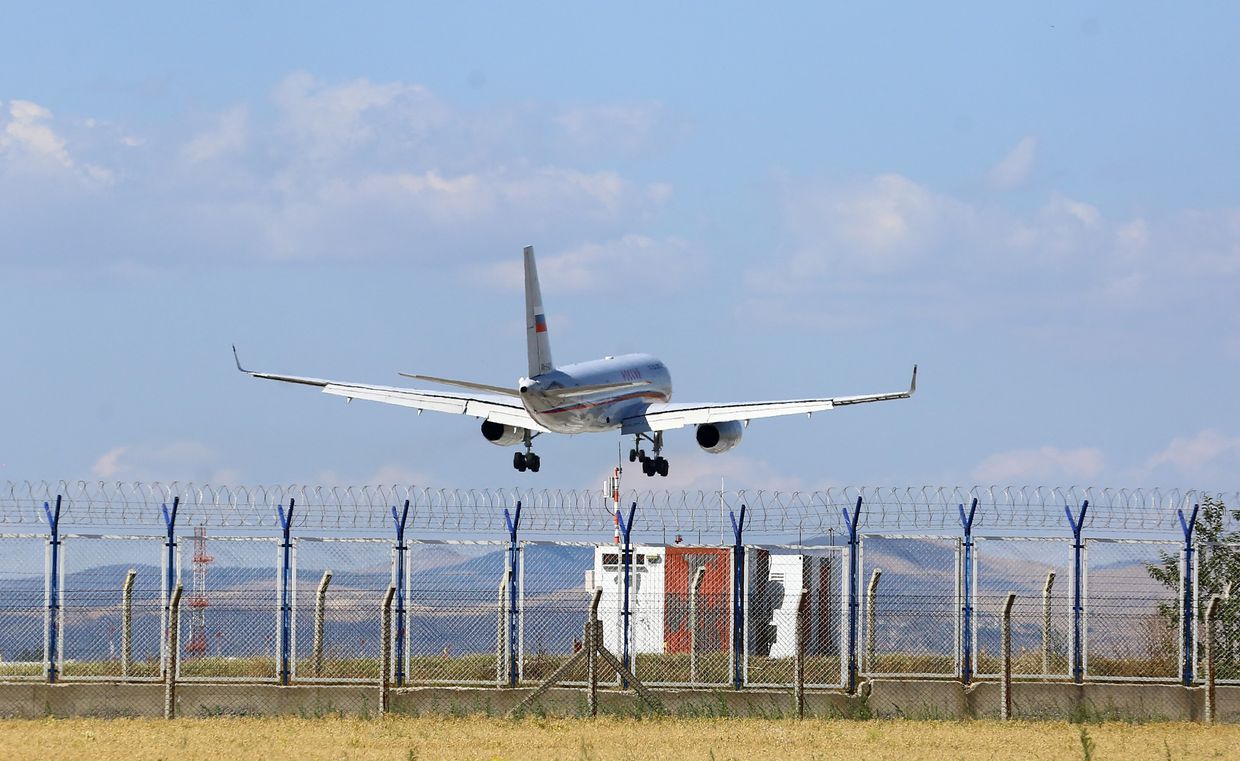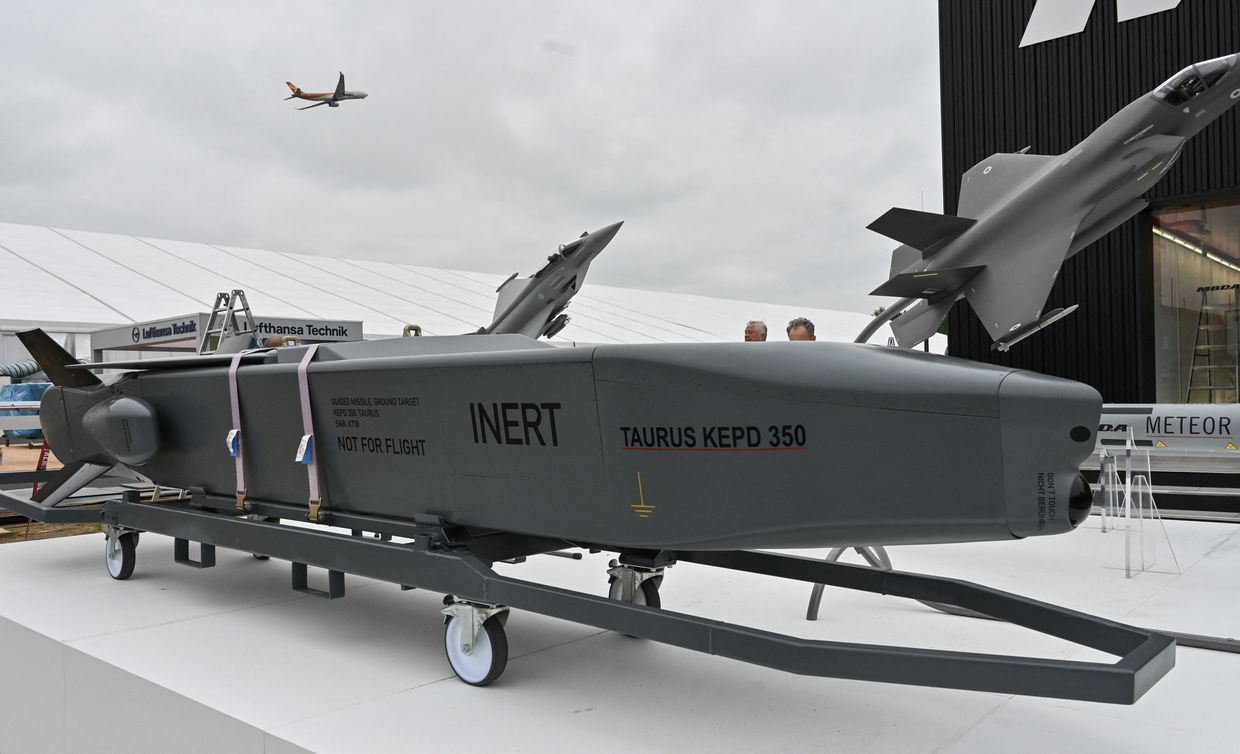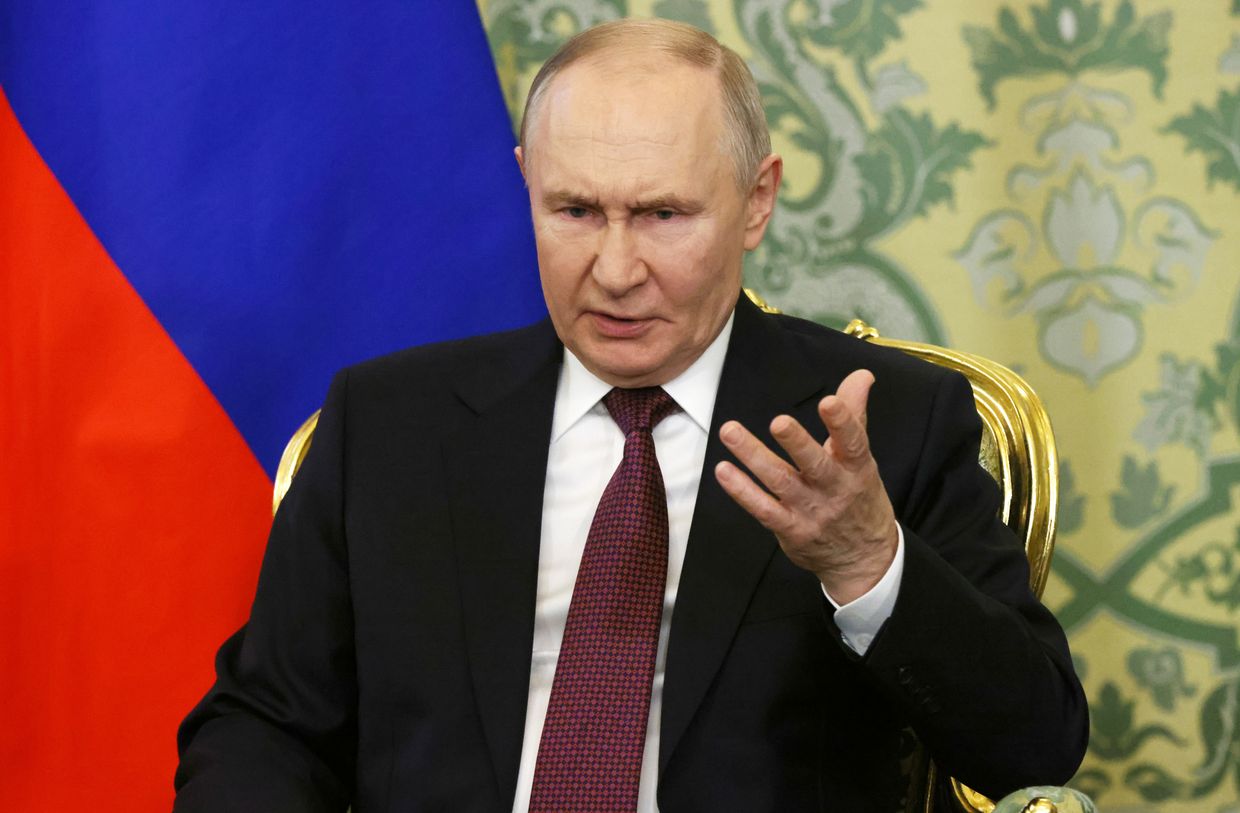Editor's note: The article incorrectly said that only soldiers were brought back to Ukraine as part of the exchange. Ukraine has brought back home 290 soldiers and 120 civilians.
Their eyes fill with tears as they hear people shouting, ‘Thank you!’ and ‘Glory to Ukraine!’
The soldiers have just arrived in Ukraine after being exchanged in the largest prisoner swap to date since the start of Russia’s war against Ukraine in 2014.
Still overwhelmed, Ukrainian soldier Anton Kobylnyk tells the Kyiv Independent at the exchange site in Ukraine that he couldn’t believe he was really going home — "not until I was back on Ukrainian soil," he said.
Over three days, from May 23-25, 1,000 prisoners from both sides will return home in a deal agreed upon during direct Russia-Ukraine talks in Istanbul earlier in May — the first such talks between Moscow and Kyiv since 2022. A total of 390 people were brought back to Ukraine as part of the exchange on May 23, President Volodymyr Zelensky said.
Russia's Defense Ministry said that 270 soldiers and 120 civilians had returned to Russia in this first swap. In turn, 270 Ukrainian soldiers and 120 civilians were brought back home to Ukraine.
Kobylnyk said he had been in Russian captivity for over three years since April 12, 2022, captured at the Azovmash plant in Mariupol during Russia’s brutal months-long siege of the city. The worst part, he said, was the psychological strain — though the physical toll was also heavy.
Originally from Pavlohrad, in Dnipropetrovsk Oblast, the first thing he tried to do when he arrived in Ukraine was call his mother.
When she finally answered, she was crying and shouting. "It’s okay, Mom, I’m home. The most important thing is that I’m in Ukraine."

The Ukrainian and Russian governments confirmed they had received the lists of POWs to be exchanged on May 22.
Zelensky announced on the same day that he held a meeting to prepare the exchange and called the agreement on the POW swap the only "real" result of the meeting between the two delegations in Istanbul.
"The agreement on the release of 1,000 of our people from Russian captivity was almost the only real result of the meeting in Turkey. We are working to ensure this result. We are finding out the details of each person listed on the Russian side," Zelensky said.
As the lists of who will be exchanged are not made public, family members who hope for the return of their loved ones from captivity arrived at the exchange site expecting good news.
Mariia Barkova, who has been waiting for her brother, a marine, to return from Russian captivity for four years, said she never misses a single exchange, and the news that this one would be the largest in history gave her new hope.
"When my friend’s son was exchanged, I got more hope. I believed it was possible to wait for the exchange to occur soon," Barkova said.
Barkova added that their parents live under Russian occupation and are awaiting their son’s exchange.
"His brother is also waiting for him. He is a cancer patient," Barkova said.
Inna Sokurina is also waiting for the return of a close family member — her son, a marine, who has been in Russian captivity for 37 months.
"We don’t know if he will be in the exchange, but we hope he will be. After all, today is Marine Corps Day (May 23),”"Sokurina said.
Sokurina added that she came to the exchange for the first time because of its scale. "This is a large-scale exchange, 1,000 people. We decided that this could be a sign," she said.
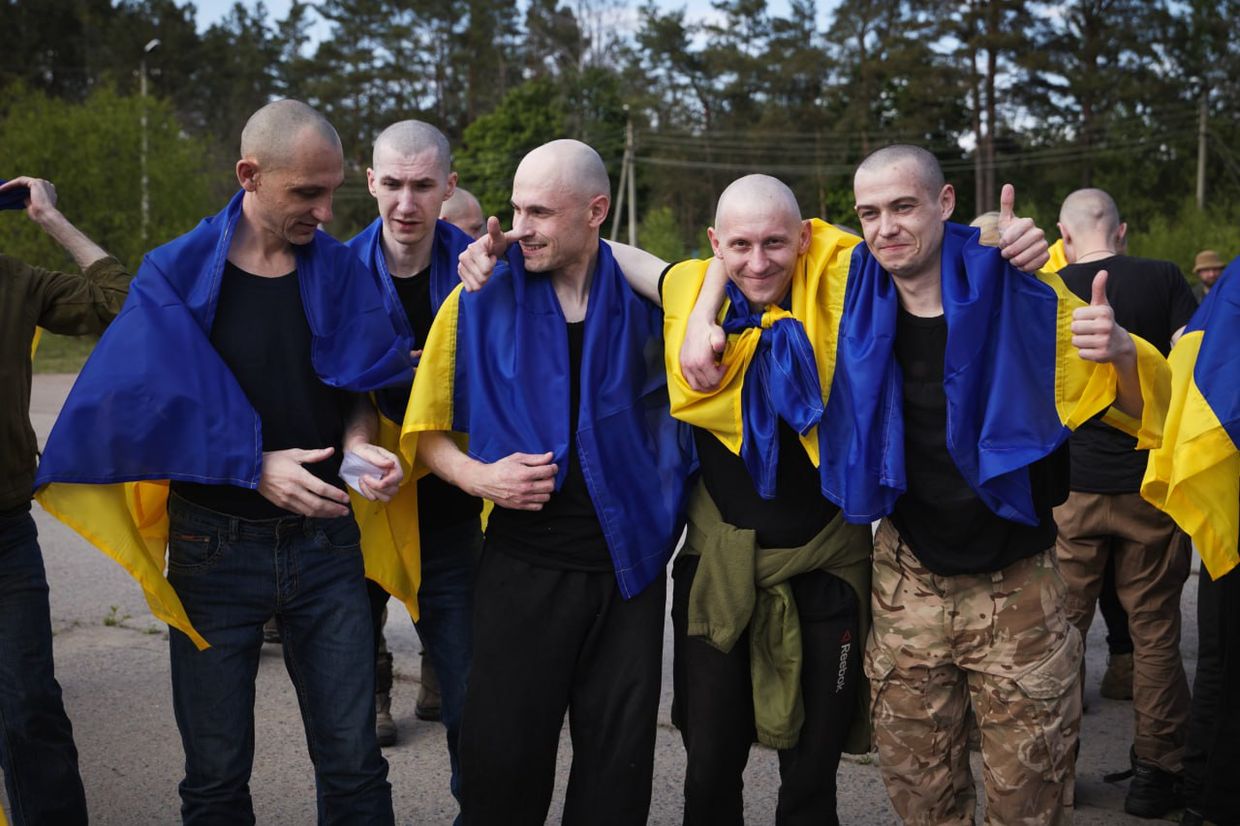
As the soldiers arrive where the family members are waiting, the family members shout out their names, hoping to find them, or at least get some information about them from the other freed prisoners.
"No, I’m sorry, I haven’t seen him. And even if I did… he might have changed so much, I wouldn’t recognize him," says Ukrainian soldier Kostiantyn, who declined to give his last name.
Kostiantyn’s hands tremble as he holds photos of those still in captivity, given to him by their relatives. After spending 21 months in Russian captivity, he speaks little of his experience — his voice marked by both sadness and gratitude to be home.
He didn’t have anyone meet him at the exchange site, but he plans to reconnect with his family soon. "I haven’t called my relatives yet. They’re not here," he says quietly. "I’ll call them later, once I figure everything out."
As he makes his way toward a clinic for a medical exam, someone shows him a photo. "I’m sorry," he says, "I really don’t know him…"
According to the President's Office chief Andriy Yermak, diplomatic representatives of the Nordic and Baltic countries also participated in preparations for the swap. He added that after the 1,000-for-1,000 exchange is completed, future direct talks with Russian officials could be arranged.
At least 8,000 Ukrainian service members are held captive by Russia, Iryna Vereshchuk, Presidential Office deputy head, said on May 1, citing data from Ukraine's Coordination Headquarters for the Treatment of POWs.
Kyiv does not release the figures for how many Russian POWs are currently in Ukrainian custody.
While ceasefire agreements and peace talks have remained elusive since the start of the full-scale invasion, regular prisoner swaps have remained one of the few areas of ongoing cooperation between the two countries.
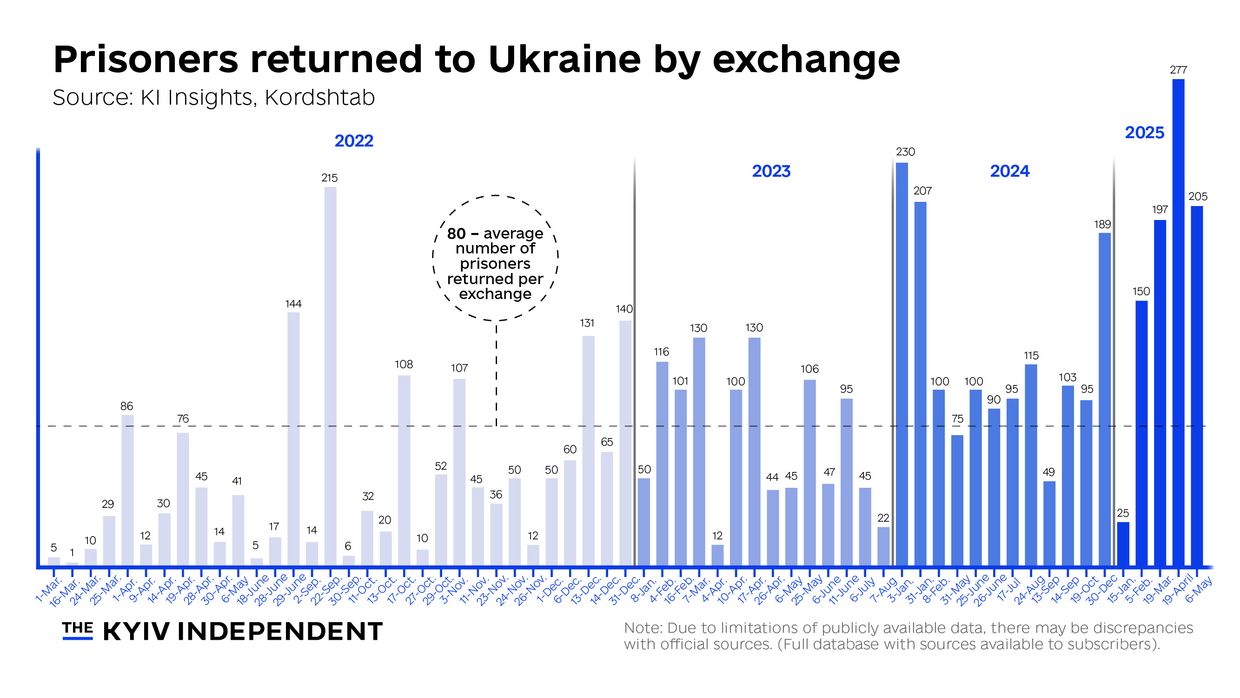
Ukraine has long advocated for an "all-for-all" exchange, but Russia has so far rejected the proposal.
On May 20, the head of the Ukrainian National Union of Journalists, Serhii Tomilenko, handed over a list of Ukrainian media workers held in Russian captivity to the Vatican's ambassador to Ukraine, Visvaldas Kulbokas. According to the union, at least 31 Ukrainian journalists are being illegally detained by Russia.
Russia has a common practice of sentencing captured Ukrainian journalists to long prison terms on fabricated charges and holding them captive in harsh conditions under physical and psychological pressure, which in most cases amounts to torture, Yurii Vitrenko, a permanent representative of Ukraine to international organizations in Vienna, said on April 10 during a regular meeting of the OSCE Permanent Council.
Russian forces have also killed 103 media workers during the full-scale invasion, according to Ukraine's Culture Ministry.
Among those killed was Ukrainian journalist Viktoriia Roshchyna, whose body Ukraine brought back in April. Roshchyna's body showed signs of torture and was missing some internal organs, which may have been deliberately removed to obscure signs of suffocation or strangulation, according to an investigation by the Forbidden Stories journalism network.

Russia is also illegally detaining at least 16,000 Ukrainian civilians, of whom only 174 have returned , according to Ukrainian Ombudsman Dmytro Lubinets.
Lubinets stressed that a country that occupies the territory of another has no right to detain civilians, according to the Geneva Conventions. "Unfortunately, international humanitarian law does not answer the question of how to respond if Russia continues this illegal practice," he added.
Another area of Ukraine's efforts to bring back its citizens is related to the return of Ukrainian children.
Over 19,500 children have been forcibly deported to Russia, Belarus, or the occupied territories, according to government data. So far, only about 1,300 of them have been safely brought to Ukrainian government-controlled territory.
Ukrainian children forcibly taken to Russia or Russian-occupied territories are placed in families or Russian camps, where they are known to be subjected to intense anti-Ukrainian propaganda, and at times, military training.
The International Criminal Court (ICC) has also taken up the matter. In March 2023, it issued arrest warrants for Russian President Vladimir Putin and Children's Rights Commissioner Maria Lvova-Belova over their involvement in abductions.
On May 8, the European Parliament overwhelmingly passed a resolution condemning Russia's forcible deportation and Russification of Ukrainian children, calling it a "genocidal strategy" aimed at erasing Ukrainian identity and demanding the unconditional return of all abducted minors.
Hi, this is Daria and Kateryna. Thank you for reading this article. The Kyiv Independent doesn't have a wealthy owner or a paywall. Instead, we rely on readers like you to keep our journalism funded. We're now aiming to grow our community to 20,000 members — if you liked this article, consider joining our community today.







